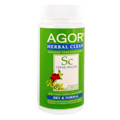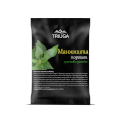 Clear, fair skin without pigmentation and blemishes is a standard of beauty in many cultures, both in the West and in the East, so there is no wonder that skin lightening, whitening and brightening products enjoy quite a demand. To figure out whether a particular product is really going to make your skin lighter, you should know about the most popular skin whitening ingredients and their properties.
Clear, fair skin without pigmentation and blemishes is a standard of beauty in many cultures, both in the West and in the East, so there is no wonder that skin lightening, whitening and brightening products enjoy quite a demand. To figure out whether a particular product is really going to make your skin lighter, you should know about the most popular skin whitening ingredients and their properties.
Skin hyperpigmentation is usually caused by an excessive production of melanin in skin cells. Makeup can help to conceal uneven skin tone and dark spots, but its effect is only temporary; when you remove makeup, pigmentation will still be there. If you’re looking for a long-term solution, you need skincare products that are specifically designed to remove dark spots and normalise the production of melanin.
Melanin is a natural pigment (or, to be more precise, a group of pigments) that determines the colour of human skin, hair and eyes. It is produced by special cells named melanocytes through a complex chemical process known as melanogenesis. The two key chemical compounds required for melanogenesis are the amino acid tyrosine, which serves as the precursor to melanin, and tyrosinase, a copper-containing enzyme that catalyses and controls the production of the pigment.
Once produced, melanin is stored in special organelles called melanosomes which can be transported to nearby skin cells to induce pigmentation. Eventually melanosomes are destroyed by another type of organelles called lysosomes and replaced by new melanosomes with “fresh” melanin. The full life cycle of pigment-containing organelles lasts for about 28 days.
The normal cycle of melanin synthesis and destruction in the skin may be disrupted due to age-related and hormonal changes in the body, as well as certain external factors. This may result in age spots, freckles, uneven skin tone, and other pigmentation. To get rid of this pigmentation, you need to adjust the cycle of production and destruction of melanin, and that’s when skin whitening products will come in handy.
Skin whitening products, also known as skin lightening products or skin bleaching products, slow down the synthesis of melanin by inhibiting tyrosinase activity, as well as stimulate skin cell renewal by exfoliating the outermost layer of the with “old” melanosomes. There are many skincare ingredients that possess such properties, including various vegetable and essential oils, plant extracts and juices, some minerals and vitamins, organic acids, and patented cosmetic active ingredients consisting of several chemical compounds that complement and enhance each other’s effect. Here are seven popular skin lightening ingredients that can be found in various skincare products.
Retinoids
The term “retinoids” refers to a class of chemical compounds that are vitamers of vitamin A or are chemically related to it. They are used in the treatment of a number of skin conditions, including acne, psoriasis, photoaging, skin wrinkles, and pigmentation. Common retinoids found in skin whitening products include retinoic acid (tretinoin), adapalene and tazarotene.
Hydroquinone
Hydroquinone, also known as quinol, has been used to reduce skin pigmentation and even out skin tone for decades. It slows down the synthesis of melanin by inhibiting tyrosinase activity, as well as helps to destroy melanosomes in the outermost layers of the epidermis. While hydroquinone is indeed effective, it is quite strong and can irritate the skin. Therefore, it is a prescription-only ingredient in some countries, including the United States and the member states of the European Union.
Arbutin
Arbutin is a natural skin lightening ingredient extracted from bearberry and some other plants. Similarly to hydroquinone, it inhibits tyrosinase and thus reduces the amount of melanin produced in the body. It poses fewer health risk than hydroquinone, but, unfortunately, it is more expensive than traditional skin lightening ingredients.
Organic Acids
Azelaic, kojic, tranexamic, phytic, ferulic, citric, mandelic, ascorbic (vitamin C) and some other organic acids have a powerful whitening effect on the skin due to their ability to inhibit tyrosinase. Depending on the concentration of these acids in a particular cosmetic product, the rate of skin whitening can vary. What is particularly great about organic acids is that they only affect “abnormal” melanocytes, but have no effect on normally pigmented skin, which reduces the likelihood of side effects.
Natural Plant Extracts
The leaves and fruits of many plants contain natural substances that have a skin lightening effect. Unlike hydroquinone, arbutin and organic acids, natural extracts are very gentle and thus unlikely to irritate the skin, but it may take more time to achieve the desired result. Popular extracts that can be found in skin lightening products include citrus extracts, bearberry extract (a natural source of arbutin), licorice root extract, mulberry extract, peppermint extract, cucumber extract, soy extract, and aloe vera extract.
Niacinamide
Niacinamide, also known as nicotinamide, vitamin B3 or vitamin PP, is commonly used to treat acne, but its ability to block the transport of melanin in melanosomes has also made it an excellent skin whitening ingredient. In addition, niacimanide helps to combat skin dryness, flaking, photoageing, fine lines and wrinkles, and the loss of skin elasticity.
Patented Active Ingredients
A lot of skin lightening products are formulated with patented active ingredients consisting of several compounds with skin lightening properties that complement and enhance each other’s effect. They include, for example, Keratoline, Sepicalm, MadeWhite, Meiritage, Chromocare, Lumiskin, Venuceane, Concentre Eclat & Lumiere, and more.
In should be noted that whitening ingredients are usually combined with antioxidants and anti-inflammatory ingredients for a more pronounced effect. In addition, lightening skincare products typically contain UV filters (SPF 15 or higher) because UV light stimulates the synthesis of melanin, rendering skin lightening ingredients useless.
Skin Lightening Products in Our Store
Agor Cleansing Scrub Mask for Dry & Normal Skin, 65 g |
Triuga Manjistha Powder, 50 g |
